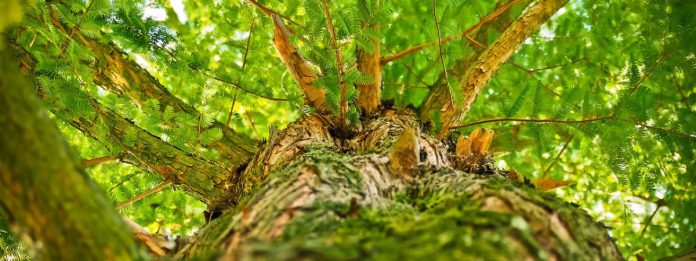Did you know that over 20% of trees in Denver are affected by some form of disease? This alarming statistic underscores the critical importance of maintaining tree health in our urban landscape. Trees are not just decorative; they play a vital role in our ecosystem, providing shade, improving air quality, and supporting local wildlife. This blog will explore the common tree diseases in Denver, the role of arborists in managing these diseases, and offer practical advice for homeowners.
Overview of Tree Diseases in Denver
Denver is home to a diverse array of tree species, including the American Elm, Ash, Cottonwood, and various types of Pine. Each of these species contributes to the city’s greenery and has unique vulnerabilities to certain diseases. Denver’s semi-arid climate, with its hot summers and cold winters, creates a challenging environment for trees. Additionally, urban stressors like pollution, construction damage, and compacted soil can exacerbate tree health issues, making them more susceptible to diseases. If you are a Denver resident facing any of these tree diseases, a professional arborist in Denver can help you.
Common Tree Diseases in Denver
Dutch Elm Disease is a devastating condition primarily affecting American Elms. Symptoms include yellowing leaves, wilting, and eventual death of the tree. The disease spreads via beetles and root grafts, thriving in warmer temperatures. Prevention methods include regular pruning, sanitizing tools, and applying fungicides.
Thousand Cankers Disease affects Walnut trees, causing small cankers on the bark, yellowing leaves, and branch dieback. It spreads through the Walnut Twig Beetle, which carries a pathogenic fungus. Monitoring and early removal of infected trees are crucial to controlling this disease.
Cytospora Canker impacts various tree species, including Spruce and Aspen. Symptoms include sunken, discolored cankers on the bark, often triggered by drought or injury. Proper watering and avoiding injury to the tree bark are essential preventive measures.
Fire Blight is a bacterial infection affecting fruit trees like Apple and Pear. Symptoms include blackened, wilted leaves and branches, and it often spreads by insects or rain. Pruning infected branches and applying bactericides can help manage this disease.
Emerald Ash Borer Infestation is an invasive pest affecting Ash trees, leading to thinning crowns, bark splitting, and tree death. The larvae burrow under the bark, disrupting nutrient flow. Controlling the spread involves insecticidal treatments and quarantine measures.
How Arborists Can Help
Arborists play a crucial role in maintaining tree health by offering services such as early detection and diagnosis, treatment plans, prevention strategies, and emergency services. They use advanced techniques, like tree health assessments and diagnostic testing, to identify diseases early. Regular inspections are vital for catching problems before they become severe.
Treatment plans by arborists often include targeted pesticide applications, pruning, and soil treatments. Successful treatment cases usually involve a combination of these methods to restore tree health. Preventative care is also a key focus for arborists, who recommend proper watering, mulching, and fertilization practices to maintain tree vigor and resistance to diseases.
In cases of severe disease outbreaks or storm damage, arborists provide emergency services, stabilizing or removing hazardous trees to prevent property damage and ensure public safety.
Tips for Homeowners
Recognizing early signs of tree diseases is crucial for effective treatment. Look for symptoms like discolored leaves, cankers, or unusual insect activity. Regular watering, proper pruning, and appropriate fertilization can keep trees healthy. Seasonal care, such as winter watering and spring mulching, is also important.
When hiring an arborist, Denver homeowners should check their credentials and ask about their experience with local tree diseases. Reputable arborists are certified and have a track record of successful treatments.
Conclusion
Maintaining tree health is essential for Denver’s urban ecosystem. By understanding common tree diseases and working with professional arborists, we can protect our trees and ensure they continue to benefit our community. Schedule a tree inspection or consultation with a local arborist today to keep your trees healthy and vibrant.















